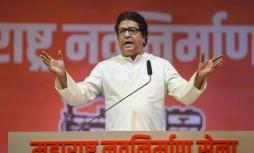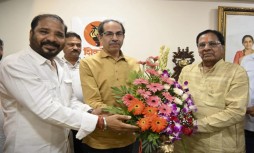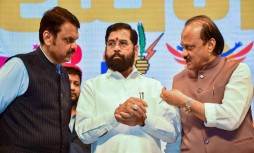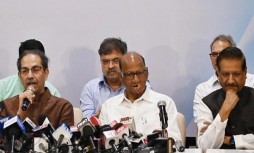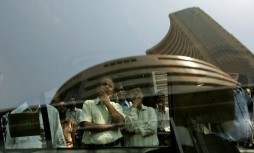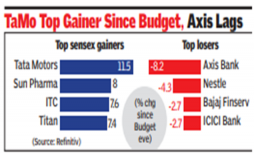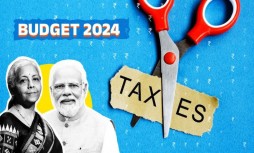India is outsourcing its tax burden to companies. Better for Modi government, not taxpayers
February 21,2024
The Narendra Modi government is facing a peculiar problem relating to the outsourcing of some of its functions. Some of what it has outsourced, such as parts of its tax collection efforts, is improving tax administration but is also proving to be a greater burden on taxpayers. Other functions that it should be outsourcing, such as data collection and analysis, it is firmly holding on to, leading to extreme inefficiencies.
In yet other cases, such as food procurement, it tried to outsource some of its functions to the private sector but was met with such stiff resistance from farmers that it had to back down.
Of these, the food procurement issue is the most current, thanks to the farmers’ protests happening once again. But the most widespread and painful problem is taxation, so let’s begin with that.
Outsourcing tax burden
The levy and collection of tax is the function of the government, whether at the municipal, state, or central level. Yet, there are a number of ways the central government, at least, has outsourced the collection function to companies and banks.
The biggest example of this is through the Goods and Services Tax (GST). One of the most important pillars of GST is the system of Input Tax Credits (ITC). Basically, a company manufacturing something has to pay tax on its inputs, which is then refunded to it as ITC. Overall, it’s a systematic approach to taxation and should work pretty well.
However, in December 2021, the GST Council decided that ITC would be available to a company only if its suppliers had also filed their GST returns.
In theory, this too is a sensible idea. Companies had been claiming larger amounts of ITC than they were entitled to, and the tax authorities couldn’t verify because they didn’t have access to the suppliers’ records. Making the suppliers also file returns was seen as a way to solve this issue.
While this move did solve the problem to an extent, it also shifted the onus of ensuring tax compliance from the government to the companies. That is, the manufacturing companies now had to ensure that all of their suppliers — sometimes very small companies — had filed their returns. The enforcement of tax collection was effectively outsourced to the private sector.
This created a double compliance burden on mid-level and larger companies. Not only did they have to comply with the GST return filing system, which can be quite onerous for companies operating in multiple states, but they also had to ensure that each of their suppliers had filed matching returns too.
Several large companies even began running workshops for their suppliers to teach them how to use the GST return filing software.
From a tax collection point of view, this has been great. GST evasion seems to be down, and collections are up. But from a compliance point of view, it represents a great burden. Mid-level companies with tens or hundreds of suppliers can’t follow up with each and every one of them and force them to file returns in time. And neither can they afford to have their working capital locked up as pending ITC while these suppliers get their paperwork in order.
It’s a question of whether a tax system should be better for the government or better for the taxpayers. At the moment, it’s tilting a bit too much toward the government.
The various items on which the government levies a Tax Deducted at Source (TDS) or a Tax Collected at Source (TCS) have a similar, if less onerous, effect. That is, by making the tax deductible or collectable at source, the government is again outsourcing its tax duties.
So, when you go abroad and spend money, it’s the responsibility of the banks to keep track and charge a 20 per cent TCS on each transaction and then deposit these sums with the government. It is then up to you to keep track of these amounts because the government has to refund them to you at the end of the financial year.
Another example is the 1 per cent TDS leviable on every crypto transaction. Who collects this amount? It’s the crypto exchanges. Look at it this way. The government has refused to regulate cryptocurrencies or crypto exchanges, saying the industry is risky and that there needs to be a global consensus on the rules, but is nevertheless happy to let these same exchanges collect tax on its behalf.
These are excellent tools for tracking purposes, but it’s debatable whether this kind of tracking and tax collection should be outsourced to non-government agencies.
On the other hand, there is a collection and analysis function that should absolutely be outsourced to a private company: statistics.
Where to utilise private enterprise
The Central Statistics Office (CSO) and National Sample Survey Office (NSSO) are overall excellent bodies, carrying out an incredibly detailed task of collecting statistics from across the country on a wide range of topics. They should continue to do so.
However, there are several areas that can use some private enterprise. If the Census is deemed too important to outsource, maybe the Consumption Expenditure Surveys (CES) can be conducted by a private company. Any number of safeguards and audits can be put in place to ensure the collection agency’s independence and the quality of data collection.
What needs to be avoided is a repeat of what happened with the 2017-18 CES. It was scrapped wholesale by the government due to “data quality issues”. All of that time and money spent gathering the data was completely wasted, not to mention the damage done to our ability to measure key aspects of the Indian economy or the reputational hit to India’s statistical system.
There are other surveys – of industries, agriculture, education and healthcare – that can all be done by the private sector. Private players, hired on a project-by-project or more permanent basis, can do them better and faster than the government seems to be able to do.
Separate statistics from politics
There is, of course, the political compulsion to control all data releases, but this is where my limited idealism once again rears its head. Statistics needs to be delinked from politics as much as possible.
Agencies like the Centre for Monitoring Indian Economy (CMIE) already host the go-to databases on a number of economic parameters. Bodies like the International Monetary Fund (IMF) also refer to them when government data is not available. If the government has issues with their data, it can work with CMIE rather than outrightly denying its findings. We need more data, not less.
Coming to food procurement, reams have already been written about how the procurement of major crops — especially the ones for which there is a Minimum Support Price (MSP) — has become a government monopoly.
The farm laws would have ensured the growth of private procurement. The Centre could have restricted itself to buying just enough to maintain its buffers and carry out whatever subsidy activities it needed to, and intervene only when the market price fell below the MSP. The MSP could have gone back to serving its purpose as the minimum support that farmers need, rather than the maximum retail price they can get. But this was not to be.
The public-private partnership system in India has rarely worked. It’s always one or the other sector working on its own that has managed to achieve significant progress. It is important, however, for the government to now reassess what it wants to keep with itself and what it wants to hand over to the private sector. Taxation, statistics, and farmers’ issues are three areas that can’t be run on auto-pilot for long.
Sharad Raghavan is Deputy Editor – Economy at ThePrint. He tweets @SharadRaghavan. Views are personal.








